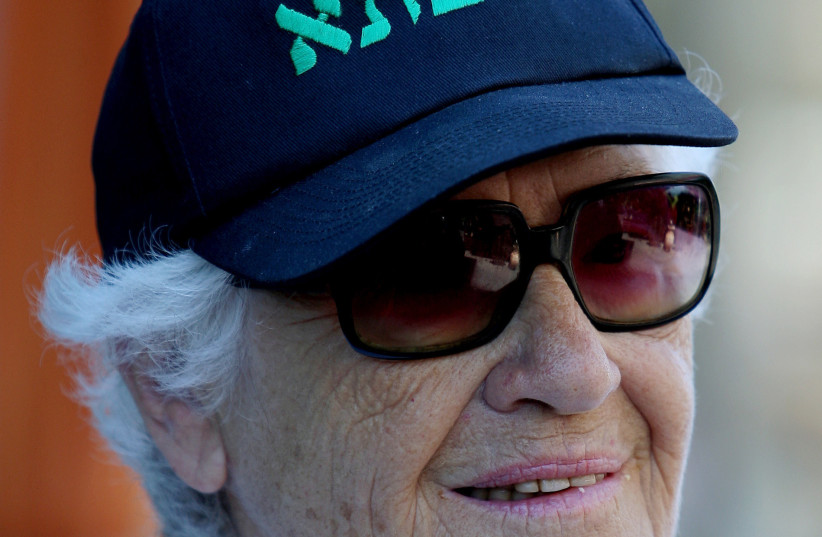Maya Arad’s outstanding novella trilogy, The Hebrew Teacher, recently translated by award-winning Jessica Cohen and fresh off the press, seems prescient, considering that it was first published in Hebrew in 2018 – eons ago in our fast-changing world.
Each story is a slice of life of an Israeli woman whose reality was altered by immigration to the United States.
The stories of Israeli women in the US
Ilana is a veteran Hebrew instructor facing declining enrollment and post-Zionist politics in her classes at a Midwestern college. Miriam flies to California, uninvited, to visit the son she’s barely seen since he left Israel 20 years before to make his fortune in Silicon Valley and to meet her grandson. Efrat, raising her family in California, crosses forbidden lines when, with the best of intentions, she follows her middle schooler into the minefield of social media.
Born in Israel in 1971, Arad clearly subscribes to the school of thought that a fiction writer should write about topics with which she is personally familiar. She received a PhD in linguistics from University College London (UCL) and has lived in California for two decades. She is the writer in residence at Stanford University’s Taube Center for Jewish Studies.
The trilogy’s first story, “The Hebrew Teacher,” reveals that the present deep-seated antisemitic/anti-Israel bias among faculty on American college campuses began long before Oct. 7. For so many years, Ilana had delighted in leading her students in singing “Od tireh, od tireh,” “You will yet see, how good it will be, next year” at Israel Independence Day celebrations. And now?

“It wasn’t a very good time for Hebrew,” Ilana reflects at the start of that last school year, when Yoad, the BDS-supporting “progressive” Israeli-American instructor of Hebrew literature, comes on board, remembering wistfully that when she had arrived, “in ’71, it had been a good time for Hebrew. When she told people she was from Israel, they used to give her admiring looks... There was boundless pride back then. Pride in the state, pride in herself,” writes Arad.
Yoad becomes the darling of the fictional Midwestern university’s administration, thus hammering the final nails into Ilana’s proverbial coffin. The soon-to-retire adjunct instructor of Hebrew language fiercely loves her native Israel and its culture. She’s hurt and bewildered by Yoad and what he represents. The shifts in attitude and allegiances that marginalize Ilana on her own turf will ring true to any reader with the slightest awareness of what it means today to be a Jew on a foreign campus.
IN THE second story, “A Visit (Scenes),” Miriam arrives in California to spend three weeks with her young grandson, the child her aloof son Yoram has finally produced in his late 40s with his young and unwelcoming wife, Maya. Right from the first page, there’s tension between Miriam and Yoram; Miriam and Maya; Miriam and the toddler; Yoram and Maya; and Yoram and his workplace. Miriam longs to be a perfect savta [grandmother] to little Yonatan, but when she accompanies Maya to pick him up from preschool that first day, his reaction to her doesn’t augur well.
“Miriam walks over, stands beside them, and runs her hand over his soft hair. She can barely speak, she’s so excited. ‘Yonatan, Yonatan,’ she repeats his name. How I’ve waited for you, Yonatan. ‘Yonatan, Yonatani, come to Grandma, Yonatani.’ The boy doesn’t look at her.”
The foil to Miriam is Malka, another Israeli savta she met on the plane, who comes twice a year to visit her son and his warm, vivacious, wife and children. The contrast is painful for Miriam. But Malka’s kindness ultimately helps Miriam come to terms with her flawed relationship with her only child and grandchild.
THE POIGNANT third story, “Make New Friends,” illustrates how the difficulty of raising preteens in the age of social media is all the more complicated for immigrant parents to understand and navigate. Efrat, who’d been a loner in her Israeli childhood, is tortured by her daughter Libby’s social struggles.
“What I want more than anything is to have one good friend,” Libby confides.
“How do you find one?” Efrat wonders. “She has no idea. To this day she can’t understand how that miracle occurs: friendship.”
Much about the mother-daughter relationship is universal, too. Probably any mother who’s ever had a 12-year-old girl will understand the mix of bewilderment, anger, hurt, pride, love, and desperation that buffets Efrat as she tries to be the right sort of mother – and pushes her to cross acceptable boundaries in a futile attempt to fashion a perfect life for Libby. In the end, she discovers more about herself than about her daughter.
I hope Cohen will translate more of Arad’s other highly regarded works into English. She is a gifted novelist.
- THE HEBREW TEACHER: THREE NOVELLAS
- By Maya Arad Translated by Jessica Cohen
- New Vessel Press
- 320 pages; $17.95
